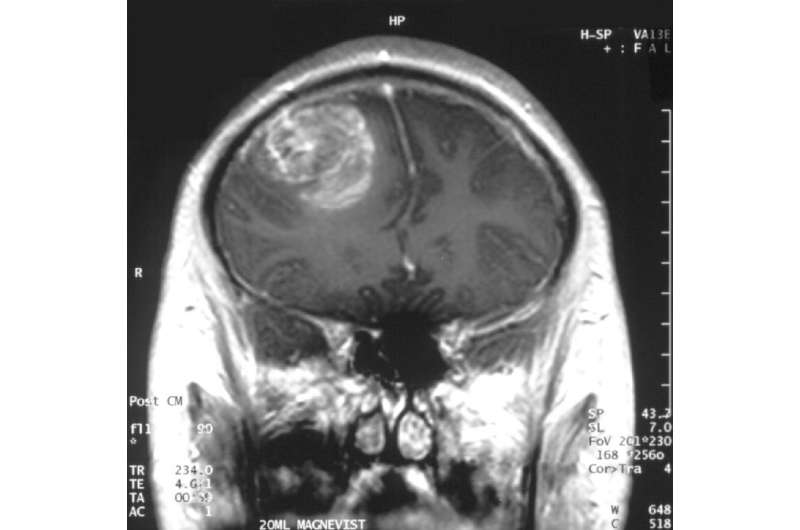#Recurrent GBM brain tumors with few mutations respond best to immunotherapy

“#Recurrent GBM brain tumors with few mutations respond best to immunotherapy”

Glioblastoma brain tumors are especially perplexing. Inevitably lethal, the tumors occasionally respond to new immunotherapies after they’ve grown back, enabling up to 20% of patients to live well beyond predicted survival times.
What causes this effect has long been the pursuit of researchers hoping to harness immunotherapies to extend more lives.
New insights from a team led by Duke’s Preston Robert Tisch Brain Tumor Center provide potential answers. The team found that recurring glioblastoma tumors with very few mutations are far more vulnerable to immunotherapies than similar tumors with an abundance of mutations.
The finding, appearing online Jan. 13 in the journal Nature Communications, could serve as a predictive biomarker to help clinicians target immunotherapies to those tumors most likely to respond. It could also potentially lead to new approaches that create the conditions necessary for immunotherapies to be more effective.
“It’s been frustrating that glioblastoma is incurable and we’ve had limited progress improving survival despite many promising approaches,” said senior author David Ashley, M.D., Ph.D., professor in the departments of Neurosurgery, Medicine, Pediatrics and Pathology at Duke University School of Medicine.
“We’ve had some success with several different immunotherapies, including the poliovirus therapy developed at Duke,” Ashley said. “And while it’s encouraging that a subset of patients who do well when the therapies are used to treat recurrent tumors, about 80% of patients still die.”
Ashley and colleagues performed genomic analyses of recurrent glioblastoma tumors from patients treated at Duke with the poliovirus therapy as well as others who received so-called checkpoint inhibitors, a form of therapy that releases the immune system to attack tumors.
In both treatment groups, patients with recurrent glioblastomas whose tumors had few mutations survived longer than the patients with highly mutated tumors. This was only true, however, for patients with recurrent tumors, not for patients with newly diagnosed disease who had not yet received treatment.
“This suggests that chemotherapy, which is the standard of care for newly diagnosed glioblastoma, might be altering the inflammatory response in these tumors,” Ashley said, adding that chemotherapy could be serving an important role as a primer to trigger an evolution of the inflammation process in recurrent tumors.
Ashley said the finding in glioblastoma could also be relevant to other types of tumors, including kidney and pancreatic cancers, which have similarly shown a correlation between low tumor mutations and improved response to immunotherapies.
Scientists unlock promising key to preventing cancer relapse after immunotherapy
Citation:
Recurrent GBM brain tumors with few mutations respond best to immunotherapy (2021, January 13)
retrieved 13 January 2021
from https://medicalxpress.com/news/2021-01-recurrent-gbm-brain-tumors-mutations.html
This document is subject to copyright. Apart from any fair dealing for the purpose of private study or research, no
part may be reproduced without the written permission. The content is provided for information purposes only.
If you liked the article, do not forget to share it with your friends. Follow us on Google News too, click on the star and choose us from your favorites.
For forums sites go to Forum.BuradaBiliyorum.Com
If you want to read more Like this articles, you can visit our Science category.


